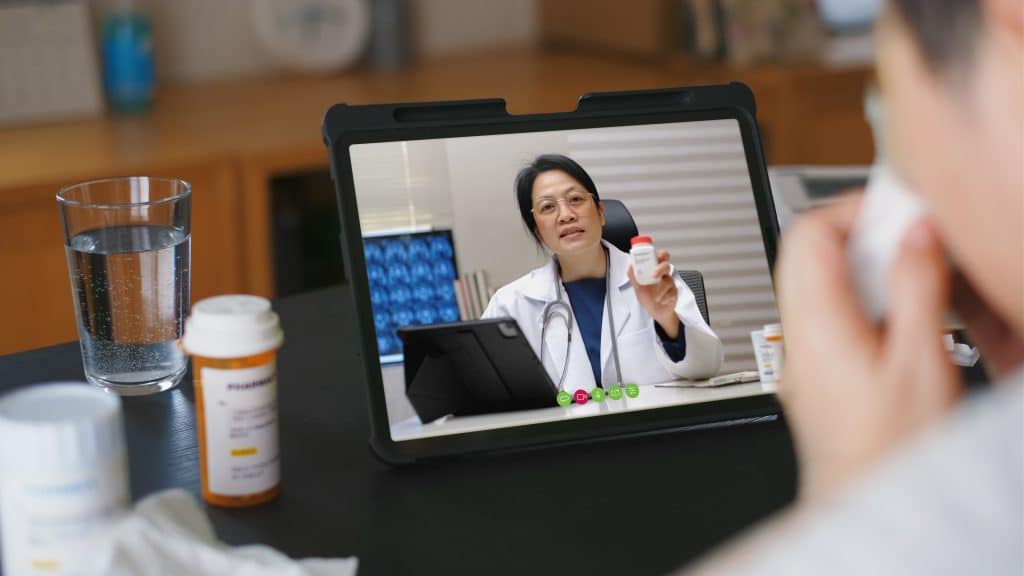In a world where technology evolves at breakneck speed, healthcare is no exception. From personalized medicine to artificial intelligence, the healthcare landscape is undergoing transformative changes that promise to revolutionize patient care. For healthcare professionals and patients alike, staying abreast of these trends is not just beneficial—it’s essential. The objective of this post is to highlight eight pivotal healthcare trends to watch for in 2024. Each trend represents a facet of how technology and innovation are shaping a new era in healthcare, offering improved outcomes, efficiency, and patient experiences.
Contents
- The Rise Of Biomarkers
- Personalized Medicine: Tailoring Healthcare To You
- AI And ChatGPT: The Future Of Healthcare Interactions
- Wearables: More Than Just Fitness Trackers
- mRNA Technology: A New Frontier In Treatment
- Telehealth: The New Normal in Healthcare Delivery
- Predictive Healthcare Analytics
- Integrating Mental Health Into Primary Care
- The Future Of Healthcare Is Now!
- Related
The Rise Of Biomarkers

Biomarkers have come a long way from being a radical concept to an integral part of modern healthcare. These biological markers serve as indicators for various diseases and conditions, providing invaluable data for diagnosis and treatment plans. Less than two decades ago, biomarker testing was considered too expensive and largely inaccessible. Fast forward to today, and over 45% of physicians recommend biomarker testing to their patients, especially for targeted treatment plans.
The applications of biomarkers extend beyond mere diagnosis. They are now used across all stages of drug and therapy development, including patient selection, safety evaluations, and efficacy assessments. This level of personalized medicine is increasingly important as society faces a growing number of complex diseases that require targeted treatment plans. The rise of biomarkers sets the stage for a broader trend: personalized healthcare.
Personalized Medicine: Tailoring Healthcare To You

Personalized medicine is not a new concept, but its potential has never been more significant. With a market size projected to reach a staggering USD 922.72 billion by 2030, personalized medicine is transforming the healthcare industry. It promises a future where medical decisions, pharmaceuticals, and interventions are tailored to individual patients, thereby reducing the risks of adverse effects and improving patient outcomes.
The most encouraging sectors of personalized medicine include cell and gene therapies, which offer groundbreaking treatments for previously incurable conditions. These therapies are part of a larger ecosystem that includes biomarker testing and artificial intelligence, all aimed at improving patient outcomes. As medical drugs and treatments continue to launch at unprecedented speeds, personalized medicine, supported by technologies like biomarkers, ensures that patient care remains at the forefront.
AI And ChatGPT: The Future Of Healthcare Interactions

Artificial Intelligence (AI) is making waves in healthcare, and one of its most talked-about applications is ChatGPT. Developed by OpenAI, this chatbot is designed to interact in a way that closely mimics human conversation. According to a survey, 77% of physicians see the potential that AI and ChatGPT hold for healthcare, signaling a shift in how medical professionals view technology’s role in their field.
The applications of AI in healthcare are manifold. For instance, AI can generate patient-specific predictions based on their current medical history, offering a new layer of personalized care. This goes hand in hand with other technologies like biomarkers and personalized medicine, creating a healthcare ecosystem that is increasingly interconnected. As AI continues to evolve, its integration with other healthcare technologies is set to redefine patient care in ways previously thought impossible.
Wearables: More Than Just Fitness Trackers

Wearable technology has evolved from simple step counters into sophisticated health monitoring devices. These gadgets are no longer just about tracking physical activity; they now offer a range of health data, from heart rate to sleep patterns. This shift is empowering individuals to take a more proactive approach to their health, providing real-time insights that can be life-changing.
The most influential use cases for wearables in healthcare include improved health monitoring and emergency management. For example, advancements in software can analyze data and provide personalized recommendations based on large human sample sizes. This level of sophistication in wearables is made possible by AI, which sifts through data to offer actionable insights. As wearables become more advanced, they are likely to become an integral part of the healthcare ecosystem, working in tandem with technologies like AI and biomarkers to offer a more holistic approach to patient care.
mRNA Technology: A New Frontier In Treatment

mRNA technology is not just a buzzword; it’s a groundbreaking approach that has already revolutionized vaccine development. Unlike traditional vaccines that use weakened or dead viruses, mRNA vaccines instruct the body to produce spike proteins, triggering a protective response against viruses. The implications of this technology are vast, extending beyond infectious diseases to potential treatments for cancer, inherited genetic disorders, and even cardiovascular diseases.
The benefits of mRNA technology are immense, but it’s not without its challenges. For instance, the technology is still relatively new, and long-term effects are not yet fully understood. However, the promise it holds for treating a wide array of conditions makes it a trend worth watching. As healthcare continues to evolve, mRNA technology is likely to play a significant role, especially when combined with other emerging trends like personalized medicine and AI.
Telehealth: The New Normal in Healthcare Delivery

Telehealth has seen an unprecedented surge in popularity, especially in the wake of the COVID-19 pandemic. This technology-empowered system of healthcare delivery offers numerous benefits, from increased accessibility to reduced healthcare costs. However, it’s not without its drawbacks. One of the most commonly cited challenges is the lack of in-person connection, which many healthcare providers are keen to address.
Looking ahead, telehealth is poised to become even more integrated into healthcare systems. Innovations like virtual reality consultations and AI-powered diagnostics are underway to improve the patient experience. As these technologies become more advanced, they will likely work in synergy with telehealth platforms, offering a more comprehensive and efficient approach to healthcare delivery.
Predictive Healthcare Analytics

Predictive healthcare analytics is another emerging trend that’s set to make a significant impact. By leveraging big data and machine learning algorithms, predictive analytics can forecast outbreaks, patient admissions, and other important metrics. This kind of forecasting is invaluable for healthcare providers, allowing for better resource allocation and more effective treatment plans.
The technology behind predictive analytics is complex but increasingly accessible. As machine learning algorithms become more sophisticated, the accuracy of predictions is likely to improve. This will enable healthcare providers to make more informed decisions, ultimately leading to better patient outcomes. As with other trends discussed, predictive analytics will likely integrate with existing technologies like AI and biomarkers, contributing to a more interconnected and efficient healthcare ecosystem.
Integrating Mental Health Into Primary Care

The integration of mental health services into primary care settings is an emerging trend that’s gaining traction. Traditionally, mental health has been treated separately from physical health, often requiring patients to seek specialized care. However, the lines between physical and mental well-being are increasingly being recognized as blurred, leading to a more holistic approach to healthcare. This integration aims to provide a one-stop solution for patients, addressing both their physical and mental health needs in a single setting.
The benefits of this integrated approach are manifold. For starters, it reduces the stigma often associated with seeking mental health treatment. Patients can discuss their mental health concerns in the same space where they consult about physical ailments, making the process less daunting. Moreover, this approach allows for better coordination of care. Physicians can have a more comprehensive view of their patient’s health, leading to more accurate diagnoses and more effective treatment plans.
The Future Of Healthcare Is Now!
The healthcare landscape is undergoing a seismic shift driven by technological innovation and a focus on personalized care. While this post has explored eight key trends, the reality is that they are interconnected, each influencing and amplifying the others. As the world moves into 2024, these trends offer not just a glimpse but a roadmap to a future where healthcare is more efficient, personalized, and accessible. Stay informed, stay adaptable, and look forward to a new era of healthcare!


